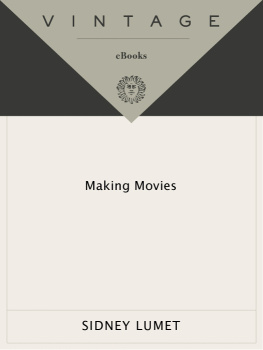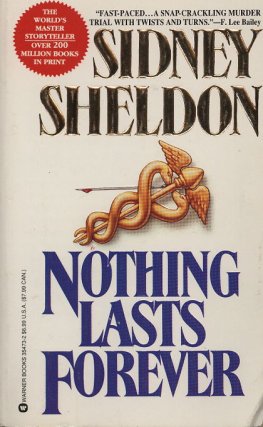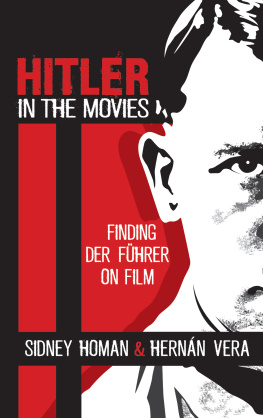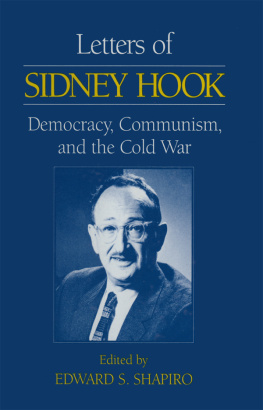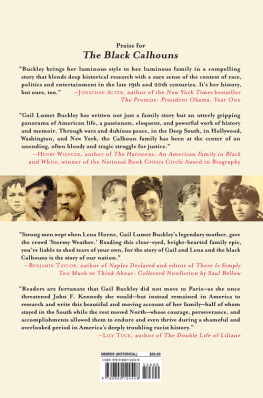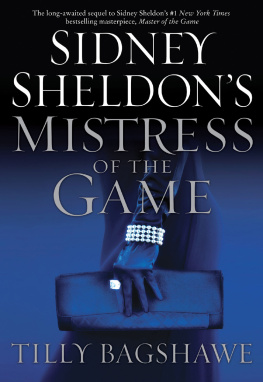Sidney Lumet - Making Movies
Here you can read online Sidney Lumet - Making Movies full text of the book (entire story) in english for free. Download pdf and epub, get meaning, cover and reviews about this ebook. publisher: Knopf Doubleday Publishing Group, genre: Detective and thriller. Description of the work, (preface) as well as reviews are available. Best literature library LitArk.com created for fans of good reading and offers a wide selection of genres:
Romance novel
Science fiction
Adventure
Detective
Science
History
Home and family
Prose
Art
Politics
Computer
Non-fiction
Religion
Business
Children
Humor
Choose a favorite category and find really read worthwhile books. Enjoy immersion in the world of imagination, feel the emotions of the characters or learn something new for yourself, make an fascinating discovery.
- Book:Making Movies
- Author:
- Publisher:Knopf Doubleday Publishing Group
- Genre:
- Rating:5 / 5
- Favourites:Add to favourites
- Your mark:
- 100
- 1
- 2
- 3
- 4
- 5
Making Movies: summary, description and annotation
We offer to read an annotation, description, summary or preface (depends on what the author of the book "Making Movies" wrote himself). If you haven't found the necessary information about the book — write in the comments, we will try to find it.
Making Movies — read online for free the complete book (whole text) full work
Below is the text of the book, divided by pages. System saving the place of the last page read, allows you to conveniently read the book "Making Movies" online for free, without having to search again every time where you left off. Put a bookmark, and you can go to the page where you finished reading at any time.
Font size:
Interval:
Bookmark:
SIDNEY LUMET
Sidney Lumets films have received more than fifty Academy Award nominations. He has been nominated by the Directors Guild of America for Best Director seven times. In addition, he has received honorary lifetime membership in the Directors Guild of America as well as its most prestigious award, the D. W. Griffith Award. In 1993, he received the Lifetime Achievement Award from the National Arts Club. His films have been shown in retrospectives at the Museum of Modern Art in New York, the American Museum of the Moving Image, the British Academy in London, and the Cinmathque in Paris. He has also been honored by the French government as a Commander of Arts and Letters.
The entrance to the Ukrainian National Home is on Second Avenue between Eighth and Ninth streets in New York City. Theres a restaurant on the ground floor. The odor of pierogi, borscht, barley soup, and onions hits me as soon as I walk in. The smell is cloying but pleasant, even welcoming, especially in the winter. The rest rooms are downstairs, always reeking of disinfectant, urine, and beer. I go up a flight of stairs and walk into an enormous room the size of a small basketball court. It has colored lights, the inevitable revolving mirrored ball, and a bar along one wall, behind which are stacked sound amplifiers in their suitcases, empty cartons, boxes of plastic garbage bags. Setups are also sold here. Stacks of folding chairs and tables are piled along the walls.
This is the ballroom of the Ukrainian National Home, where loud, stomping accordion-accompanied dances are held on Friday and Saturday nights. Before the breakup of the USSR, there would be at least two Free the Ukraine meetings held here every week. The room is rented out as often as possible. And we have now rented it for two weeks to rehearse a movie. Ive rehearsed eight or nine movies here. I dont know why I feel like this, but rehearsal halls should always be a little grungy.
Two production assistants are nervously awaiting me. Theyve started the coffee machine. In a plastic box, amid ice cubes, are containers of juice (freshly squeezed), milk, and yogurt. On a tray, bagels, Danish, coffee cake, slabs of wonderful rye bread from the restaurant downstairs. Butter (whipped and packaged) and cream cheese (whipped and packaged) are waiting, plastic knives alongside. Another tray holds packets of sugar, Equal, Sweet n Low, honey, tea bags, herb teas (every kind imaginable), lemon, Redoxon (in case anyone has the first signs of a cold). So far so good.
Of course, the PAs have set up the two rehearsal tables the wrong way. Theyve placed them end to end, so the twelve or so people due here in half an hour will have to sit stretched out as if in a subway car. I have them move the tables side by side, putting everybody as close together as possible. Newly sharpened pencils are lined up in front of each chair. And a fresh script. Even though the actors have had their scripts for weeks, its amazing how often they forget them on the first day.
I like to have as much of the production team as possible at the first reading. Already present are the production designer, costume designer, second assistant director, the Directors Guild of America (DGA) trainee (an apprentice), the script girl, the editor, and the cameraman, if hes not out doing tests on locations. As soon as the tables are in place, they descend on meall of them. Floor plans are rolled out. Swatches. Polaroids of a red 86 Thunderbird and a black 86 Thunderbird. Which do I want? We still dont have permission for the bar on Tenth Street and Avenue A. The guy wants too much money. Is there another location that will work as well? No. What should I do? Pay him the money. Truffaut has a moment in Day for Night that touches the heart of every director. Hes just finished an arduous days shooting. Hes walking off the set. The production team surrounds him, peppering him with questions for tomorrows work. He stops, looks to the heavens, and shouts, Questions! Questions! So many questions that I dont have time to think!
Slowly, the actors come wandering in. A false joviality hides their nervousness. Did you hear the one aboutSidney, Im so glad were working together again hugs, kisses. Im a big kisser myself, a toucher and a hugger as opposed to a groper. The producer arrives. Usually, hes the groper. His object this morning is to ingratiate himself, particularly with the stars.
Now, a huge burst of laughter rises from downstairs. One of the stars has arrived. The star is also ingratiating himself, showing what a regular guy he is. Sometimes there will be an entourage. First, a secretary. This is discouraging, because it means that on a ten-minute break, the secretary will bring in eight messages so urgent that the star will be on the phone instead of resting or studying the script. Second, the stars makeup person. Most stars have a contractual right to their own makeup person. Third, a bodyguard (whether needed or not). Fourth, a friend, wholl leave quickly. And last, there is the teamster driver. He gets a union minimum of about nine hundred a week plus overtime. And there is lots of overtime, because most stars have the earliest call in the morning and are the last to leave at night. The teamster will have nothing to do from the time he drops the star off at rehearsals until he picks the star up at night to take him home. So the first thing the teamster does is head for the coffee machine. He tries a piece of the coffee cake, then a Danish. A glass of orange juice to wash down the coffee, and then a bagel, heavily buttered to get rid of the taste of the Danish. A little egg salad, a little fruit, and finally he tiptoes back downstairs again, to do whatever it is that teamsters do all day.
Not all stars keep an entourage. Sean Connery will bound up the steps two at a time, rapidly shake hands all around, then plop himself down at the table, open his script, and start studying. Paul Newman treads slowly upstairs, the weight of the world on his shoulders, puts drops in his eyes, and makes a bad joke. Then he opens his script and starts studying. I dont know how he manages without a secretary. Paul leads one of the most generous and honorable lives of anyone Ive ever known. Between his popcorn and salad dressing and his other merchandising, all for charities hes created, which serve people overlooked by other charities, not to mention his movie work, his days are packed. But he does it all and never seems pressed.
The unit publicity person is there too. Theyre annoying, publicists, but their lives are hell. The actors hate them because theyre always asking for an interview on the day the actor has to shoot his most difficult scene; the studio is always letting them know that what theyre sending to the West Coast is crap and unusable; the stars personal publicity people, jealously guarding their turf, want all requests to go through them; and we all know that nothing the publicists do now matters, because the picture wont be out for at least nine months and whatever photo was in the Daily News will have been long forgottenand besides, the title of the movie will have been changed.
Often the last to arrive is the writer. He is last because he knows that at this point he is the target. At this moment, anything wrong can only be his fault, since nothing else has happened yet. So he moves quietly to the coffee table, stuffs his mouth full of Danish so he wont have to answer any questions, and tries to become as small as possible.
The assistant director is trying to set up the last of the medical exams for the insurance company (leading cast members are always insured). And Im making believe Im listening to everybody, a phony warm smile on my face, just waiting for the minute hand to reach straight up (the start of the hour) so we can begin the reason for all this: Were here to make a movie.
Next pageFont size:
Interval:
Bookmark:
Similar books «Making Movies»
Look at similar books to Making Movies. We have selected literature similar in name and meaning in the hope of providing readers with more options to find new, interesting, not yet read works.
Discussion, reviews of the book Making Movies and just readers' own opinions. Leave your comments, write what you think about the work, its meaning or the main characters. Specify what exactly you liked and what you didn't like, and why you think so.

